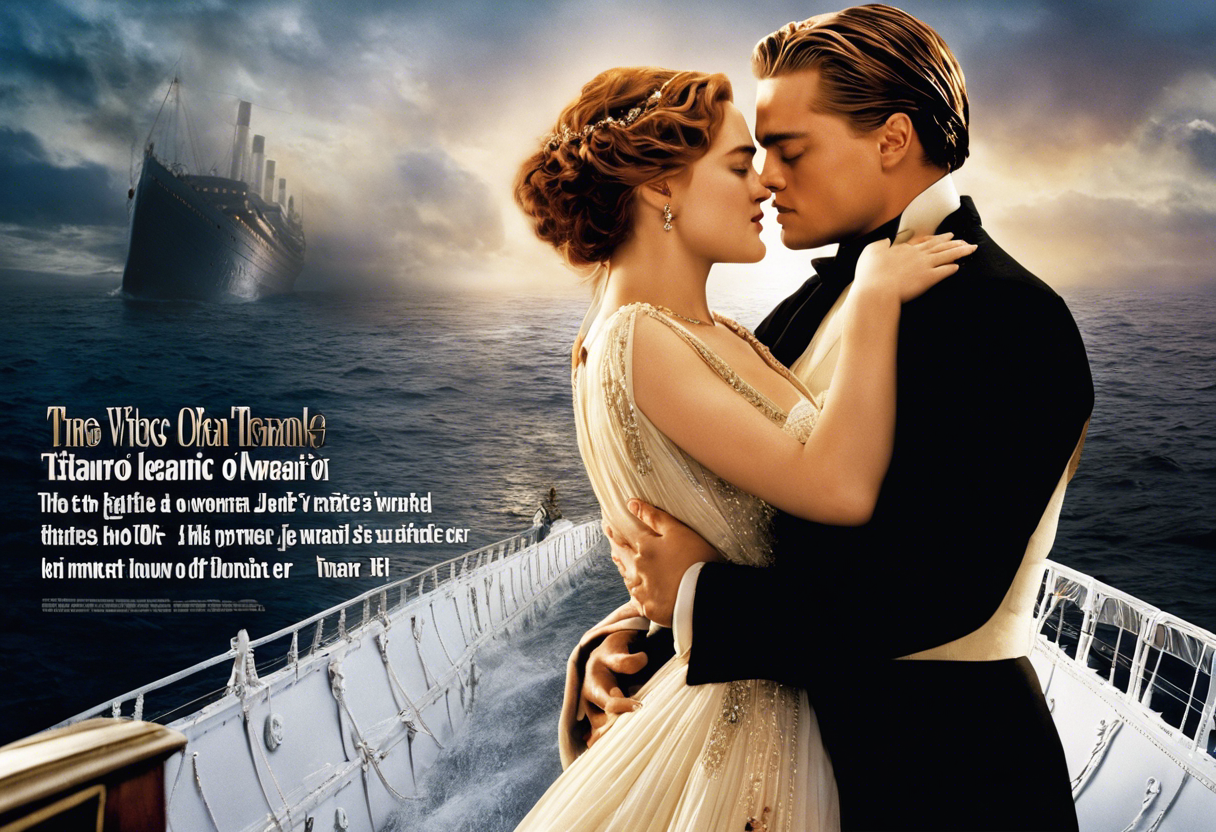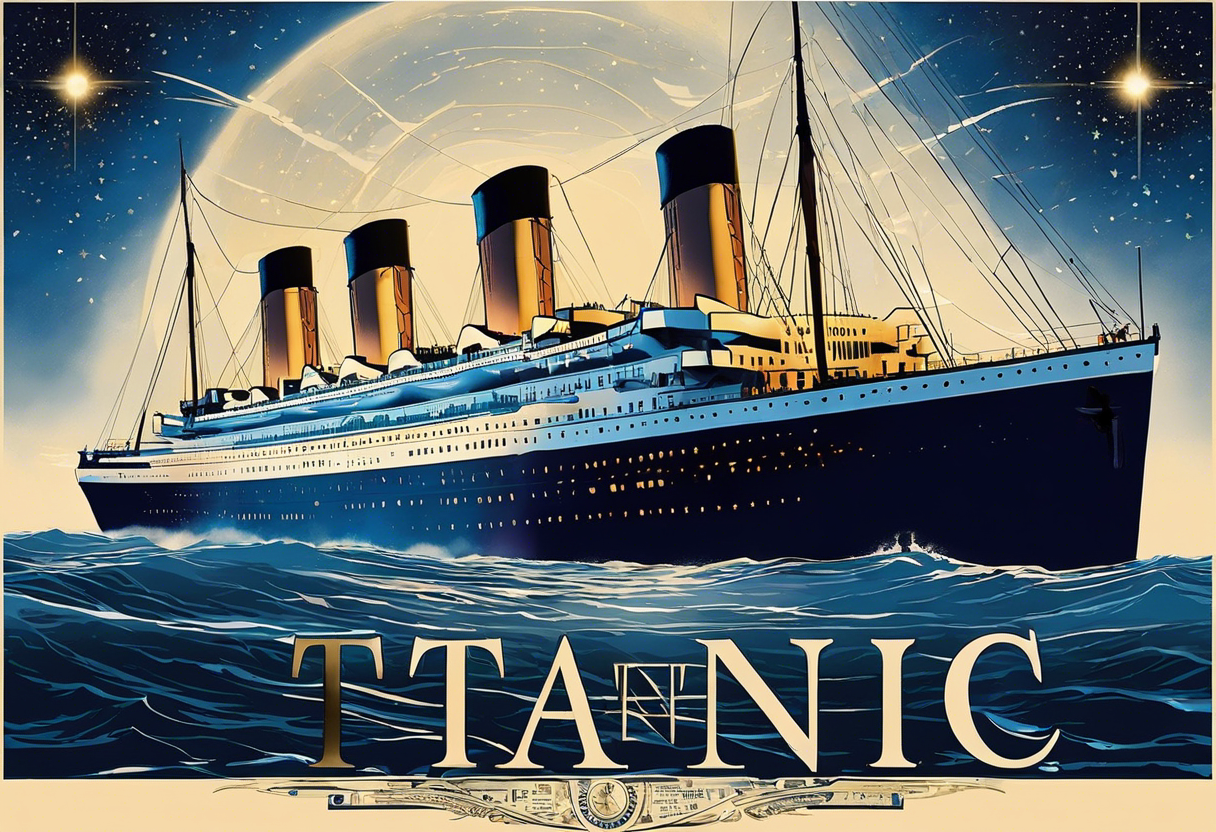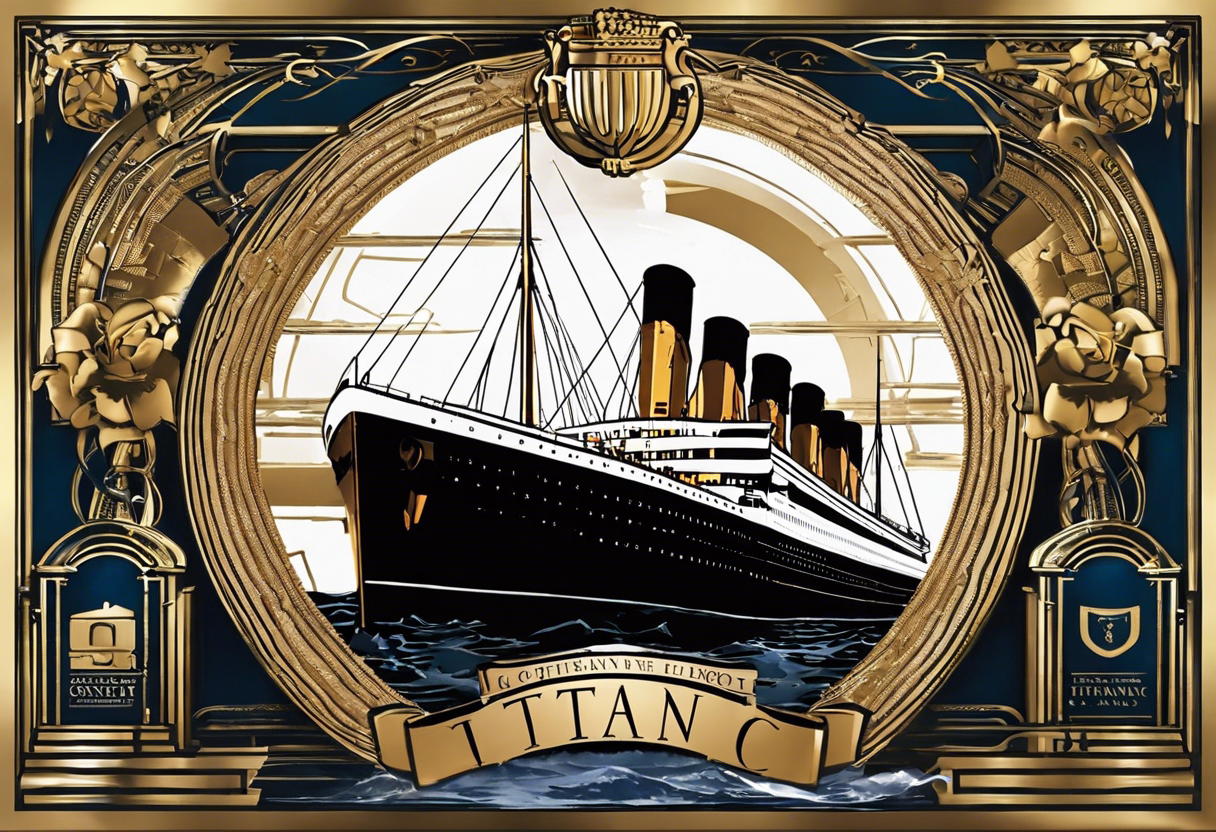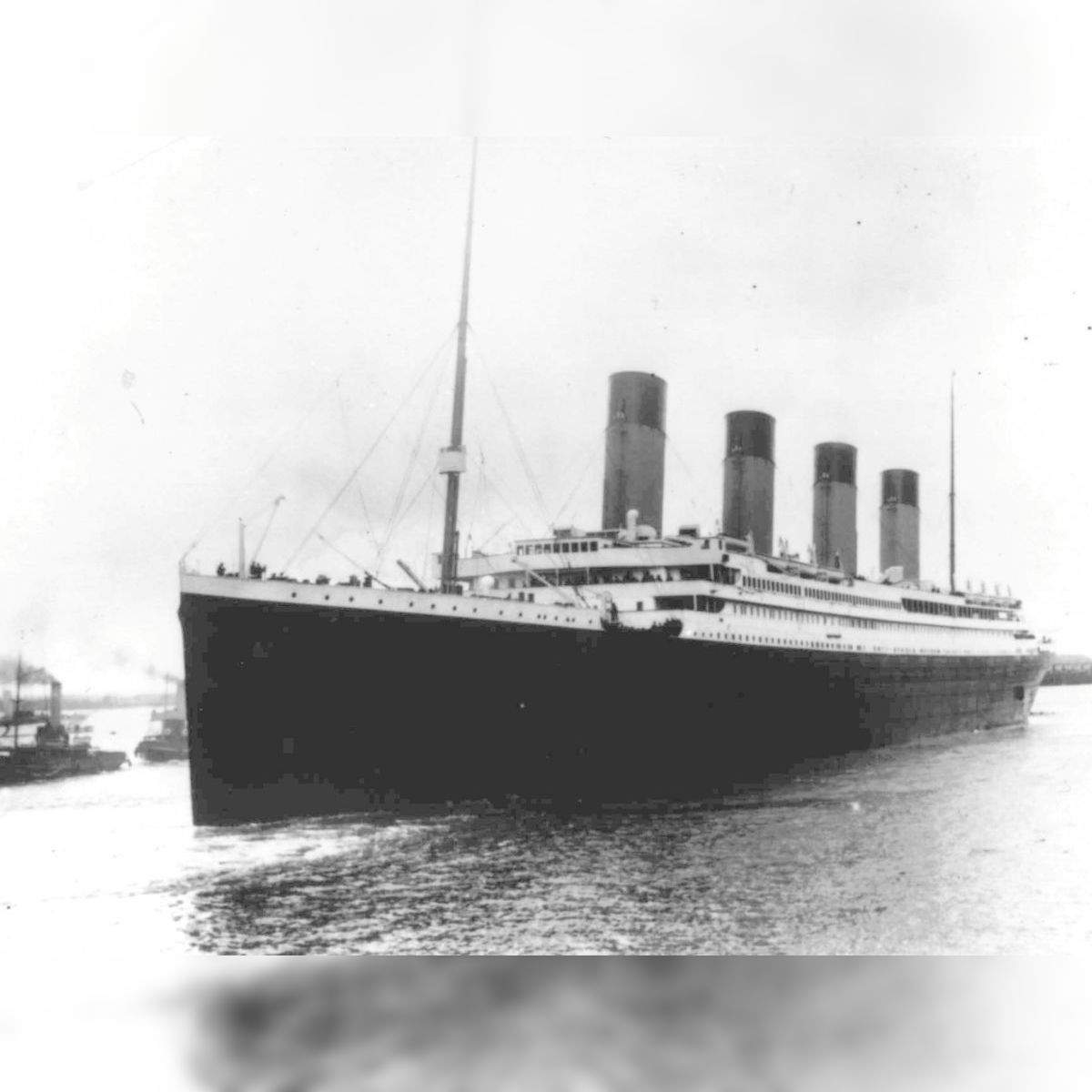The Impressive Legacy of the Titanic Movie
 The Impressive Legacy of the Titanic Movie
The Impressive Legacy of the Titanic Movie
The Historical Impact of Titanic Movie
The release of the Titanic movie in 1997 had a profound historical impact, leaving an indelible mark on popular culture, as well as sparking renewed interest in the tragic event that inspired it.
- Increased global awareness: The Titanic movie brought the story of the ill-fated ship to a global audience. Through its captivating storytelling and stunning visuals, viewers were transported back in time to the fateful voyage, allowing them to experience the grandeur and tragedy of the Titanic firsthand.
- Preservation of the Titanic's memory: The movie served as a poignant reminder of the lives lost on the Titanic and the significance of the disaster. It effectively immortalized the ship and the people aboard, ensuring that their stories and the lessons learned from the tragedy would be remembered for generations to come.
- Historical accuracy and research: The creators of the Titanic movie invested significant time and effort in meticulously recreating the ship and its events. Extensive research was conducted to ensure historical accuracy, showcasing the attention to detail and dedication of the filmmakers. This commitment to authenticity helped preserve the historical integrity of the Titanic's story.
- Revived interest in maritime history: The movie revitalized public interest in maritime history, especially the Titanic. It sparked a wave of curiosity about the ship's construction, passenger experiences, and ultimately, its tragic demise. As a result, historical sites related to the Titanic, such as museums and exhibits, experienced an increase in visitors and interest.
- Influence on future films: The success of the Titanic movie had a lasting impact on the film industry. Its innovative use of special effects and captivating storytelling techniques set a new standard for epic dramas. The movie's popularity inspired other filmmakers to explore historical events and create compelling narratives based on real-life tragedies.
Overall, the Titanic movie's historical impact cannot be overstated. It not only served as a touching tribute to those who lost their lives on the Titanic but also reignited public interest in the event and helped preserve the memory of this significant historical moment. The Titanic movie will forever be remembered for its role in shaping our understanding and perception of one of the most iconic tragedies in modern history.
Cinematic Achievements of Titanic
The film Titanic, directed by James Cameron, achieved significant milestones in the cinematic world. Its groundbreaking visual effects and immersive storytelling revolutionized the industry.
- Visual effects: Titanic pushed the boundaries of visual effects, bringing to life the grandeur of the majestic ship and its tragic sinking. The seamless integration of special effects and practical sets created a sense of realism that captivated audiences. From the breathtaking shipwreck scenes to the impressive recreation of the Titanic's interiors, the film set new standards for visual effects in filmmaking.
- Production design: The attention to detail in the production design of Titanic was remarkable. The team meticulously recreated the grandeur of the ship and the era in which it sailed. From the opulent first-class cabins to the bustling steerage area, every aspect of the ship was meticulously reconstructed. This level of authenticity contributed to the film's immersive experience and garnered critical acclaim.
- Sound design: The sound design of Titanic played a crucial role in enhancing the film's emotional impact. From the haunting echoes of the ship's corridors to the thunderous cracks of the iceberg collision, the sound effects created an immersive auditory experience. Additionally, the iconic musical score composed by James Horner became synonymous with the film, elevating its emotional resonance.
- Historical accuracy: Despite being a fictionalized account, Titanic strived to portray the historical events with accuracy and respect. Extensive research was conducted to ensure that the film captured the essence of the Titanic's final voyage. The accuracy extended to the costumes, props, and even the behavior of the characters, resulting in a film that pays homage to the real-life tragedy.
- Award-winning performances: The performances in Titanic were hailed for their emotional depth and authenticity. Leonardo DiCaprio and Kate Winslet's portrayal of Jack and Rose's ill-fated love story brought the characters to life, captivating audiences worldwide. Their on-screen chemistry and gripping performances earned critical acclaim and multiple Academy Award nominations.
The cinematic achievements of Titanic have left an indelible mark on the film industry. Its groundbreaking visual effects, meticulous production design, immersive sound design, historical accuracy, and award-winning performances cement its legacy as one of the most significant films of all time.
Cultural Influence of Titanic Movie
The cultural influence of the Titanic movie cannot be overstated. Released in 1997, this epic love story set against the backdrop of the tragic sinking of the Titanic has become a cultural phenomenon. It captured the hearts of millions around the world and left an indelible mark on popular culture. Here are some notable ways in which the movie has influenced our cultural landscape:
- Box Office Success: The Titanic movie was a colossal box office success, becoming the highest-grossing film of all time at that point. Its unprecedented success catapulted it into the public consciousness, making it a must-see film for audiences worldwide.
- Iconic Characters: The characters portrayed in the movie, such as Jack and Rose, have become iconic figures in pop culture. Their love story has resonated with audiences and spawned countless references and parodies in various media.
- Romanticizing the Titanic: The movie romanticized the tragic events of the Titanic's sinking, immortalizing the ship as a symbol of love and tragedy. This perspective has influenced the way people perceive and remember the Titanic disaster.
- Revitalizing Interest in the Titanic: The movie revitalized public interest in the Titanic itself. It sparked a renewed fascination with the ship's history, leading to increased tourism to Titanic-related sites and museums.
- Soundtrack and Theme Song: The film's unforgettable soundtrack composed by James Horner, with the iconic theme song "My Heart Will Go On" performed by Celine Dion, became synonymous with the movie and a global sensation. The song topped charts around the world and won multiple awards, contributing to the film's cultural impact.
- Acclaim and Awards: The Titanic movie received widespread critical acclaim and won numerous accolades, including 11 Academy Awards. Its success elevated the status of director James Cameron and the cast, further cementing its place in film history.
- Fashion and Style: The costumes and fashion showcased in the movie, particularly Rose's iconic outfits, have influenced fashion trends and inspired vintage and period-themed events and parties.
- Epic Cinematic Experience: The grand scale and visual effects of the film set a new standard for epic filmmaking. Its use of cutting-edge technology and CGI has influenced the industry and inspired filmmakers to push the boundaries of what can be achieved on the silver screen.
The Titanic movie's cultural influence continues to resonate today, as it remains a beloved film that has left an indelible mark on popular culture. Whether through its memorable characters, iconic soundtrack, or revitalization of interest in the Titanic itself, the movie has secured its place as a cultural touchstone that will be remembered for generations to come.
Titanic and the Romance Genre
One of the most captivating aspects of the Titanic movie is its portrayal of a beautiful love story set against the backdrop of tragedy. The film seamlessly combines historical events with a compelling romance, capturing the hearts of audiences worldwide.
From the moment Rose, a young socialite, meets the charming but poverty-stricken artist Jack aboard the Titanic, their chemistry is undeniable. Their forbidden love blossoms amidst the opulence and grandeur of the luxurious ship, creating a captivating narrative that resonates with viewers of all ages.
The Titanic movie revitalized the romance genre, redefining the possibilities of love stories on the big screen. Its success inspired a new wave of romantic films, with filmmakers striving to recreate the same emotional intensity and sweeping grandeur that captivated audiences.
The film's ability to evoke strong emotions and capture the essence of love has made it an enduring favorite among fans of the romance genre. Through its memorable characters and heartfelt performances, Titanic created an emotional connection that has stood the test of time.
Moreover, the movie showcased the power of love to transcend societal barriers and defy expectations. Rose and Jack's relationship defies the rigid social norms of the time, highlighting the importance of following one's heart and pursuing true love, even in the face of adversity.
The Titanic movie's exploration of love amidst tragedy also adds depth to its romantic narrative. The impending disaster lends a sense of urgency and heightened emotions to the story, intensifying the connection between Rose and Jack. This juxtaposition of love and tragedy creates a captivating and bittersweet experience for the audience.
The legacy of the Titanic movie in the romance genre is undeniable. Its influence can be seen in the countless films that have since sought to capture the same level of emotional resonance and grandeur. Titanic's enduring popularity is a testament to its ability to transport viewers into a world of love, passion, and heartbreak.
The Titanic Effect: Economic and Box Office Impact
The release of the Titanic movie in 1997 had a profound impact on both the global economy and the box office. The film, directed by James Cameron, not only captivated audiences with its powerful storytelling and stunning visuals but also generated significant revenue, cementing its place in cinematic history.
One of the most notable effects of the Titanic movie was its contribution to the economy. With a budget of $200 million, the film employed thousands of workers, from actors and crew members to special effects technicians and set designers. This created a ripple effect in various industries, leading to job creation and increased spending on materials and services.
Moreover, the success of the Titanic movie extended beyond the film industry itself. As the movie gained popularity, it created a surge of interest in all things related to the Titanic. This sparked a boom in tourism to locations associated with the tragedy, such as Belfast, Northern Ireland (where the Titanic was built), and Southampton, England (where it set sail).
The economic impact of the Titanic movie was not confined to its production and tourism effects. The film's box office success was unprecedented, grossing over $2 billion worldwide. It held the record for the highest-grossing film of all time until James Cameron's another blockbuster, Avatar, surpassed it in 2010. This massive box office success propelled the film industry into new heights, as studios and filmmakers aimed to replicate the Titanic's global appeal.
The Titanic movie's impact also extended to the awards season. It received critical acclaim and garnered a staggering 14 Academy Award nominations, tying the record set by All About Eve in 1950. The film went on to win 11 Oscars, including Best Picture and Best Director, solidifying its place in cinematic history.
Furthermore, the Titanic movie's success paved the way for the establishment of new revenue streams through merchandise and licensing deals. From soundtrack albums to clothing lines, the film's iconic status allowed for the creation of a wide range of products that further boosted the film's economic impact.
In summary, the Titanic movie not only mesmerized audiences with its captivating story and breathtaking visuals but also had a profound impact on the global economy and the film industry. Its success generated jobs, increased tourism, and set new box office records, opening doors for future blockbuster films. The Titanic effect continues to be felt even after decades since its release, making it a truly remarkable and influential piece of cinema.








































